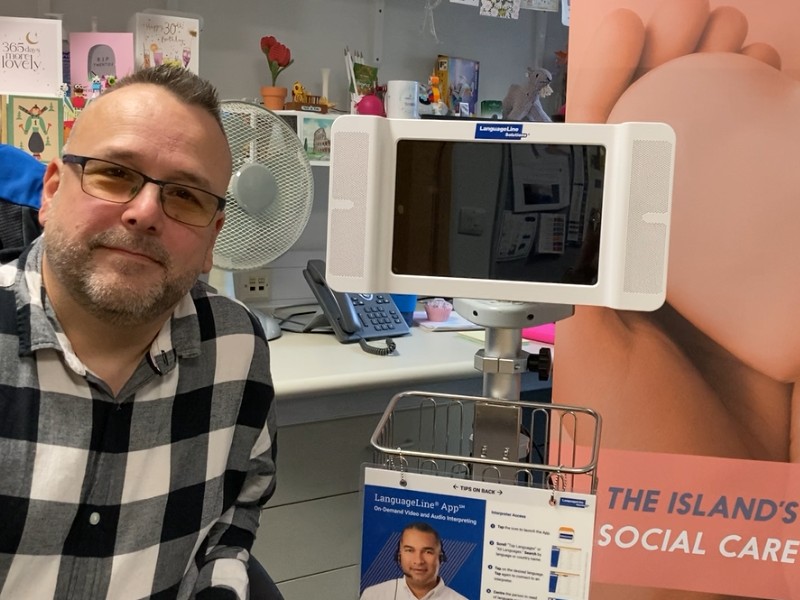Summary:
Why is translation critical for nonprofits in global communities? Nonprofits often serve areas with many languages and vulnerable groups like refugees. Accurate translation helps people understand essential info—like healthcare or legal rights—fostering trust, safety, and better outcomes.
What translation challenges do nonprofits face? Key issues include finding linguists for rare languages, handling cultural sensitivity and low literacy, and acting fast during crises—all while maintaining consistent messaging and controlling costs.
How can nonprofits improve translation? Use clear, translation-friendly English, summary translations when possible, and expert partners. Style guides, glossaries, and staff training help ensure consistency, faster turnaround, and stronger impact.

Streamlining Nonprofit Translation to Reach Multilingual Communities
In a refugee camp outside a war-torn city, a mother reads a leaflet in her native language, finally clear on how to get her children vaccinated. A teenage girl scrolls through a smartphone app and smiles as familiar words guide her to local support services.
In places where uncertainty and loss often dominate, something powerful is happening: people are receiving life-saving information in the language they know best.
Thanks to the translation efforts of one global aid and relief organization, communication is no longer a barrier. It’s a bridge.
Our client, a nonprofit serving more than 26 million people each year, responds to the world’s most urgent humanitarian crises. Their work spans health care, education, sanitation, counseling, and financial assistance. In these efforts, clear, timely communication is essential. It is also increasingly multilingual.
To reach more people more effectively, they partnered with LanguageLine.
Challenge: Communicating in the Midst of Crisis
As a global organization working in volatile and unpredictable environments, our client faces evolving linguistic needs. While their primary translation needs are from U.S. English into French and Modern Standard Arabic, their response to global emergencies demands far more.
In recent years, they’ve required translation in languages such as Tigrinya, Kinyarwanda, Swahili, Amharic, French Creole, Congolese Swahili, Dari, Farsi, and Chinese. In one instance, they received poor-quality audio files where even identifying the source language proved difficult. With background noise masking the dialogue, LanguageLine’s team worked closely with the client and linguists experts to detect the spoken languages as Hausa and Babur, which are both rare and hard to source in the localization world.
Beyond linguistic diversity, the client must also consider varying levels of literacy among their audiences. Many recipients have limited education and need materials that are not only translated accurately, but also written clearly and presented with cultural sensitivity. This is especially important for subjects like sexual violence, where language must be handled with care, clarity, and compassion.
Their objectives were threefold:
- Ensure consistently high-quality, culturally appropriate translation across all materials
- Standardize processes across teams and regions
- Centralize translation spending at agreed-upon rates
Solution: A Scalable, Strategic Translation Partnership
Although LanguageLine has partnered with this organization since 2008, recent years have brought a deeper, more strategic collaboration to meet the growing complexity of their work.
We delivered a suite of customized services designed to improve efficiency, reduce costs, and strengthen the quality of every translated word.
Key support included:
- Customized style guides and glossaries to ensure clarity, accuracy, and consistent tone across languages
- Summary translation for audio files and documents where a full translation was unnecessary, saving both time and money
- Best practice training, delivered in-person, to help internal teams write English content that’s optimized for translation and avoids ambiguity or regional expressions
For certain projects—particularly audio recordings where the goal was general understanding—LanguageLine recommended summary transcription. Instead of a full translation, a linguist listened to the file and provided a concise English summary. This allowed the client to assess the content quickly, with lower costs and faster turnaround.
We also helped streamline internal workflows. By coaching staff on how to write "translation-friendly" English, we reduced the need for clarifications during the translation process and accelerated timelines across the board.
One particularly impactful project was the localization of a smartphone app designed to help refugees resettle in the U.S. LanguageLine translated the content into Dari, Kinyarwanda, and Congolese Swahili, ensuring that newcomers could navigate services and support in their own language.
Across every format, including corporate communications, eLearning modules, interviews, educational posters, and digital applications, LanguageLine’s team brought deep linguistic knowledge and sector-specific experience to every interaction.
Outcome: Clearer Communication and Greater Reach
Through our collaboration, the client saw measurable improvements in cost efficiency, turnaround time, and message clarity.
Results included:
- Consistent messaging across languages, ensuring accuracy and cultural alignment
- Enhanced ability to reach and support diverse populations in crisis situations
- Cost savings through the use of summary translations and standardized glossaries
- Faster delivery of multilingual content thanks to better-prepared source material
By centralizing spend, standardizing processes, and improving internal practices, the organization was able to translate more content in less time, without sacrificing quality. Most importantly, they could reach more people in their preferred language, with materials that resonate and inform.
From field clinics to refugee camps to online tools, their messages are now being heard, understood, and acted upon.
Let’s Talk Solutions
LanguageLine is honored to support organizations doing critical work on the front lines of crisis response. With deep expertise in localization, content strategy, and language access, we help clients communicate effectively, no matter the language, dialect, or complexity of the moment.
If your organization is navigating multilingual communication challenges, we’re here to help. Please reach out to us at translation@languageline.com or 1-800-752-6096.





